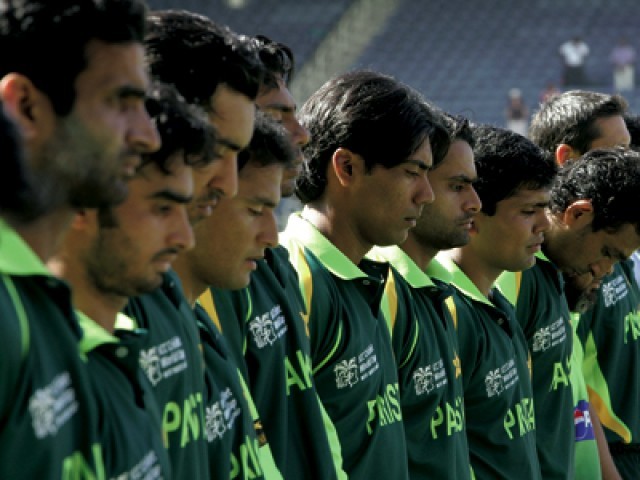Kamran Akmal has been told by the ICC that he is clear to seek Pakistan selection. Kamran, Pakistan's first-choice wicketkeeper-batsman, has not played since the one-day series against England in September. He wasn't selected for the current series against South Africa, ostensibly because he wasn't fit when the squad was announced; he had undergone an appendicitis operation days before the announcement. But clouds of suspicion, the fall-out of the spot-fixing scandal, have swirled around his non-selection.
Kamran has recovered and has been playing domestic cricket for his employers National Bank of Pakistan. Tellingly, however, the selectors chose to call up his brother, Adnan Akmal, as the wicketkeeper when Zulqarnain Haider fled to England from Dubai halfway during the series against South Africa.
The PCB has not made any statement on why Kamran was left out, though his particularly poor performance with the gloves - especially in Tests - suggests his exclusion might have been on form alone. But in the absence of any clear communication, Kamran, a vital part of Pakistan's limited-overs set-up where he doubles as a hard-hitting opener, was compelled to contact the ICC midway during the South Africa one-day series. ESPNcricinfo understands that Kamran broadly asked whether he was facing any charges linked to spot-fixing that might be blocking his selection. He was informed soon after by the world's governing body that he wasn't and that he is clear for selection.
Kamran was one of two Pakistan players - the other was Salman Butt - sent notices by the ICC's Anti-Corruption Unit (ACSU) after the Nottingham Test against England this summer. The notices sought information about events related to the 2010 World Twenty20 held in the Caribbean in May. It is not yet clear whether Kamran's enquiry and the ICC's response are linked to these notices.
Since the spot-fixing scandal, the PCB has begun implementing a rash of measures designed to eliminate corrupt influences from the game in Pakistan. As part of an unofficial confidence-building measure, the board will send a list of probables for the 2011 World Cup to the ACSU to be vetted before the pool of 30 is announced on November 30.
Additionally, the board's newly formed integrity committee will also clear players for selection. Danish Kaneria, who was embroiled but eventually cleared in a separate spot-fixing case with his county Essex in the summer, was not cleared by the committee to join the Test side in the UAE. Kaneria, Pakistan's leading spin wicket-taker, was originally selected in the squad, but was prevented from travelling by the board at the very last minute. No official reason has been provided for his exclusion.
















